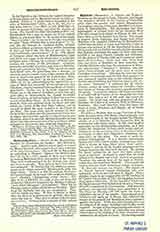

Melchisedechians, a branch of the Monarchians, founded by Theodotus the banker. (See Monarchians.) Another quite distinct sect or party is refuted by Marcus Eremita, who seems to have been a disciple of St. John Chrysostom. His book Eis ton Melchisedek, or according to Photius “Against the Melchisedekites” (P.G., lxv, 1117), speaks of these new teachers as making Melchisedech an incarnation of the Logos. They were anathematized by the bishops, but would not cease to preach. They seem to have been otherwise orthodox. St. Jerome (Ep. 73) refutes an anonymous work which identified Melchisedech with the Holy Ghost. About A.D. 600, Timotheus, Presbyter of Constantinople, in his book “De receptione Hcereticorum” (Cotelier, “Monumenta ecclee. Grieca”, III, 392; P.G., LXXXVI, 34), adds at the end of his list of heretics who need rebaptism the Melchisedechians, “now called Athingani” (Intangibles). They live in Phrygia, and are neither Hebrews nor Gentiles. They keep the Sabbath, but are not circumcised. They will not touch any man. If food is offered to them, they ask for it to be placed on the ground; then they come and take it. They give to others with the same precautions. Nothing more is known of this curious sect.
JOHN CHAPMAN

